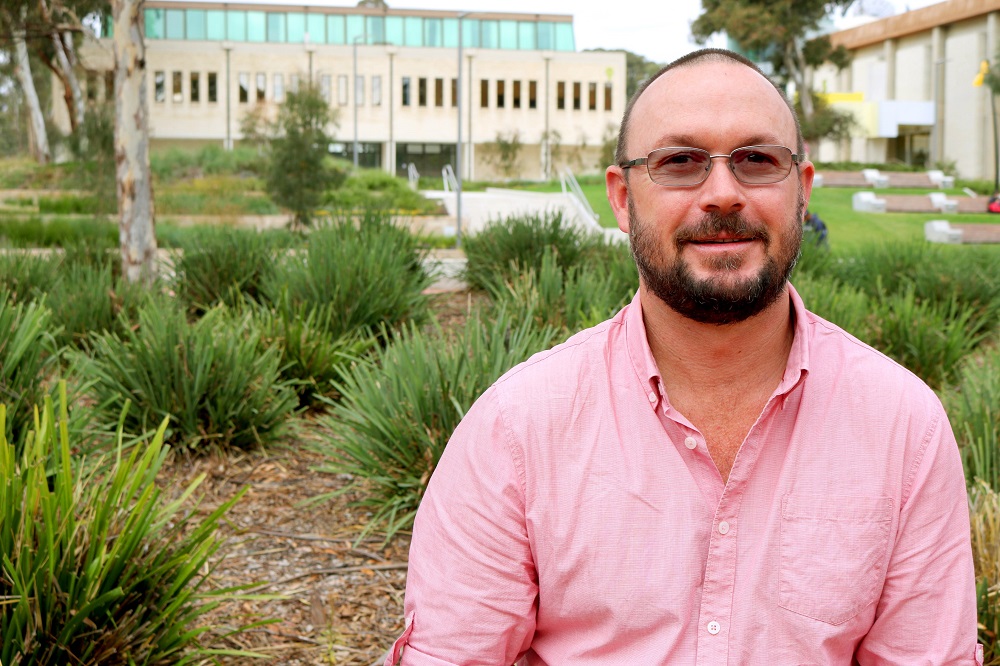18 November 2019: Three University of Canberra researchers have received a total of more than $1.2 million in the 2020 Australian Research Council (ARC) Discovery Early Career Researcher Awards (DECRA).
Over $400,000 each was awarded to Associate Professor Dr Philip Roberts for research in rural education for sustainable community futures; Assistant Professor Dr Mohammad Abualsheikh to examine privacy coupling and personal devices, and; Assistant Professor Dr Munawar Hayat to look at empathy in robots through future Artificial Intelligence machines.
“The University of Canberra’s research performance has gone from strength-to-strength, seeing the University rocket up the rankings to be in the Top 200 in the world according to the influential Times Higher education global university rankings, said Leigh Sullivan, Deputy Vice-Chancellor, Research and Innovation.
“This acknowledgement of the outstanding research that not one, but three early career academics are doing in the areas of education, engineering and robotics is testament to the dedication of these researchers to pursue innovative, future-forward research at the University.

Associate Professor in the Faculty of education Dr Phil Roberts says it is a great feeling to have been given validation of the work he has been undertaking for many years. His research will incorporate detailed analysis from systems, community groups, and case studies in six rural, regional and remote communities to improve education for these communities.
“It is quite humbling to have that validation and to have the support of the assessment panel and the peak research body,” said Dr Roberts. “It is career-defining in many ways. Once you are recognised by the ARC, you have made it.”
Assistant Professor of Engineering Dr Mohammad Abualsheikh’s project will focus on novel schemes to preserve the privacy of individuals’ data in the Internet of Things and machine learning services. It’s an area in which he sees great relevance for community impact and wellbeing, across government, industry and service sectors dealing with individuals’ data.
“The Australian Research Council DECRA will provide me with a great opportunity to expand on this valuable research,” he said.
Meanwhile, Assistant Professor in Software Engineering Dr Munawar Hayat will be looking at equipping the robots of the future with empathy, in a human-centred approach to Artificial Intelligence that has a huge potential to change the way we interact with robots.
Dr Hayat will be developing computational models that leverage off both verbal and non-verbal cues. His research will be of particular relevance to the rehabilitation, healthcare and education sectors, and will further the body of knowledge around machine learning, Artificial Intelligence and affective computing.
Assistant Professor Dr Mohammad Abualsheikh
Privacy Coupling: When Your Personal Devices Betray You
This project aims to propose novel privacy preserving schemes that can protect the privacy of individuals in the era of Internet of things and machine learning. In the recent years, most Australian organizations have been a target of privacy and cybersecurity attacks, affecting their data and network systems. The expected outcomes of this project are privacy preserving schemes that can prevent attackers from compromising the private information of individuals in IoT and machine learning services, and thus significantly improve the protection against cybersecurity attacks. Significant benefits in social wellbeing and security are expected for all industry, government, and service sectors that collect data about people.
Associate Professor Dr Philip Roberts
Engaging Rural Knowledges in Education for Sustainable Community Futures
This project aims to enhance understanding of the existing and unique knowledges in rural, regional and remote communities and how these can be used to enhance achievement in contemporary, metropolitan-focused, education. The project will generate new understandings about rural knowledge, related influences upon student curriculum access and achievement, and how rural, regional and remote communities understand educational success. Through detailed analysis of data from systems, community focus groups, and school case-studies in six rural, regional and remote communities this project expects to advance knowledge to help make education better meet the needs of rural, regional and remote communities
Assistant Professor Dr Munawar Hayat
Towards Robotic Empathy: A human-centred approach to future AI machines
The project aims to equip future robots with empathy by developing computational models which can leverage from verbal and non-verbal cues. With recent advances in artificial intelligence research, robots now have better cognitive and function skills, but they lack socio-emotional skills. Since these robots are expected to provide assistance to humans across different domains including rehabilitation, education and health care, empowering them with empathetic abilities is important for their success. The project will advance fundamental research in machine learning, effective computing and artificial intelligence to model human behavior, personality traits and emotions for an empathetic human-robot interaction.


